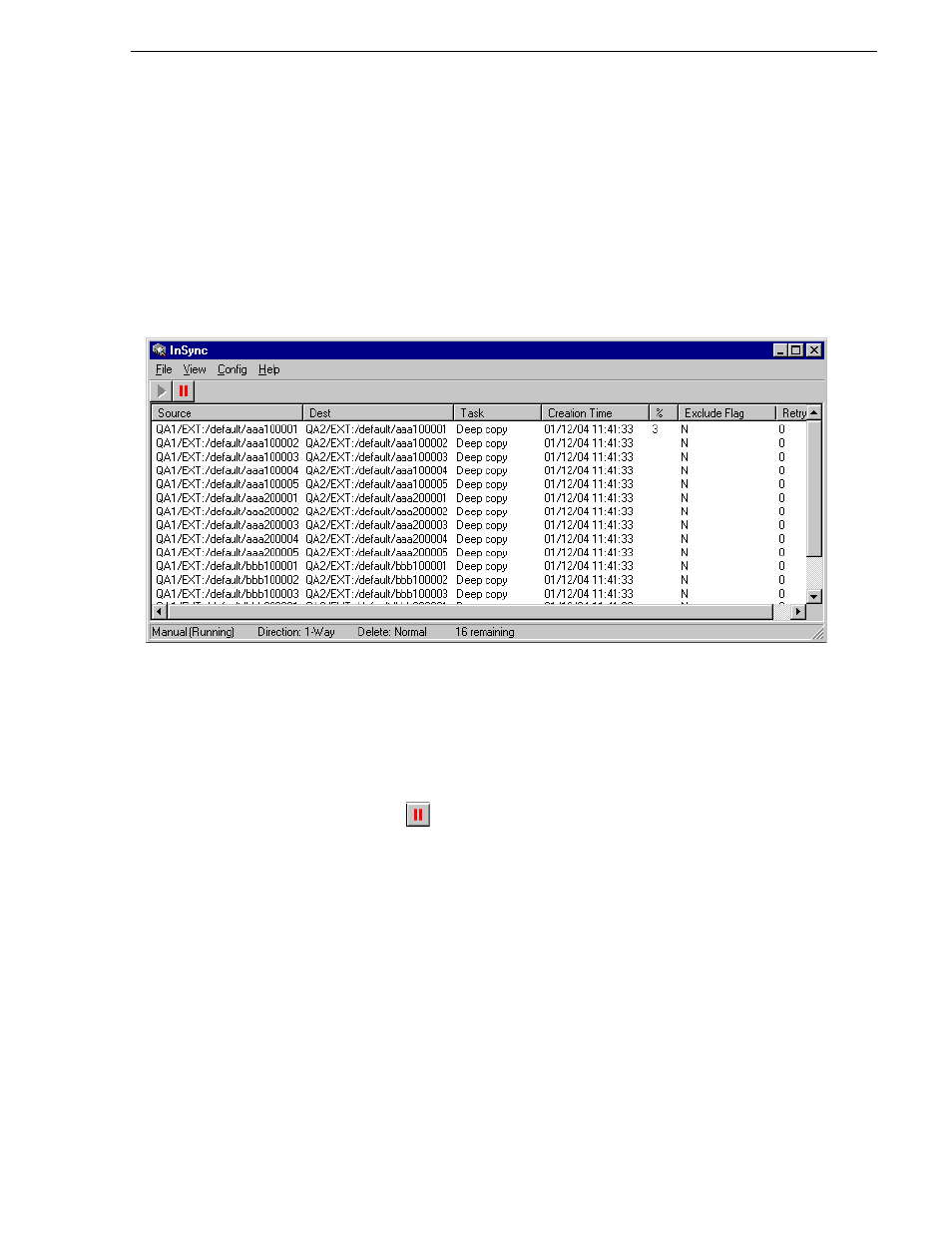Setting master and slave profile xps – Grass Valley Profile InSync v.3.0 User Manual
Page 9

July 2, 2008
InSync User Guide
9
Setting master and slave Profile XPs
This dialog box allows you to manually view and/or load a previously saved
configuration file. If you do not manually view or load a configuration file before the
countdown time period expires, InSync automatically loads the configuration file that
you used last. The first time you start InSync, it loads a default configuration file,
which is stored at C:/InSync.cfg.
There is a pause as the configuration file loads and InSync gets a list of clips from the
XP. This pause can last for several seconds, depending on the number of clips on the
XP. After the pause, the InSync main interface opens.
InSync opens with the Synchronization List area displayed. The status area, at the
bottom of the InSync application window, displays a summary of the configuration
currently loaded. Depending on the current configuration, synchronization might
begin immediately, in which case a queue of synchronization tasks is displayed in the
Synchronization List area. The progress of the task currently being processed is
reported in the “%” column. When a task completes, it is purged from the queue.
To stop the current synchronization processes but leave the InSync application open,
click the Pause button.
To close the InSync application altogether, click
File | Exit
.
Continue with the following procedures to create, save, and use configurations to
control InSync operation
.
Setting master and slave Profile XPs
You must define a master Profile XP and a slave Profile XP before any
synchronization takes place. The Profile XPs must meet requirements as in
System requirements” on page 7
. To test the connectivity required for InSync, use
Media Manager and do a transfer between the Profile XPs.
To set master and slave Profile XPs, do the following:
1. Click
Config | View
. The Configuration dialog opens.
